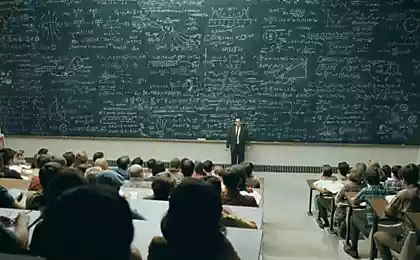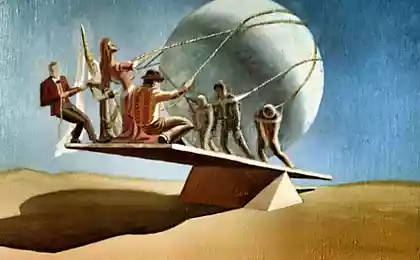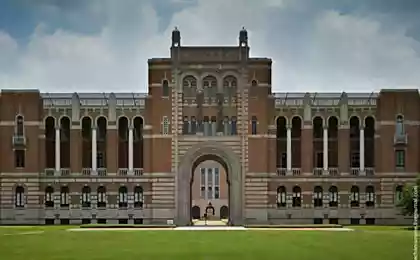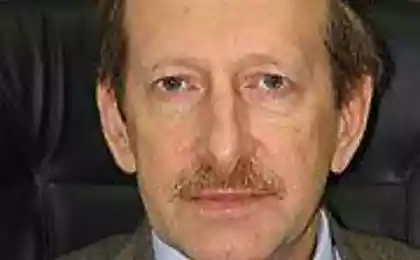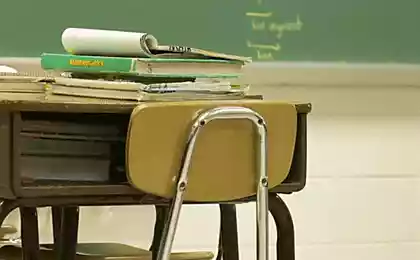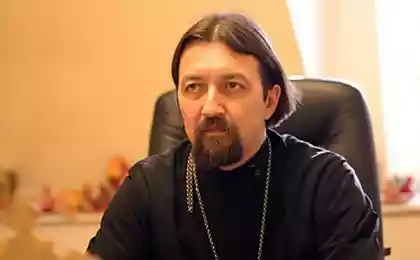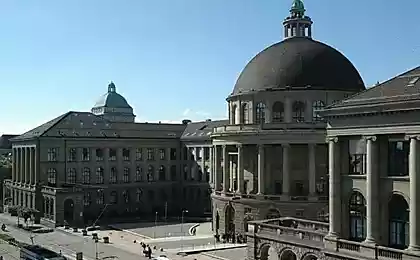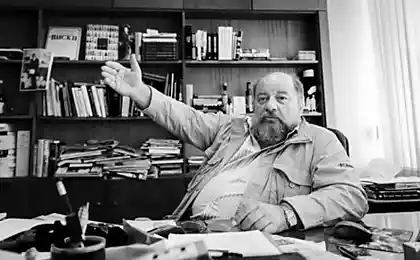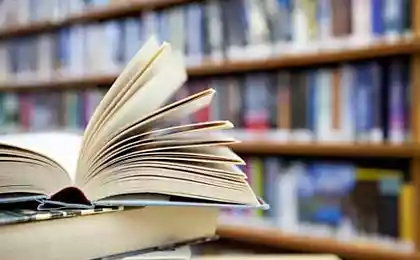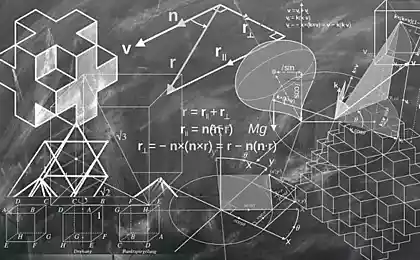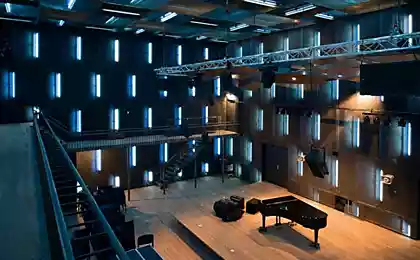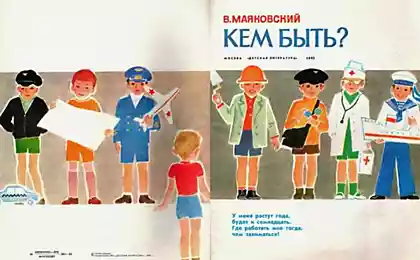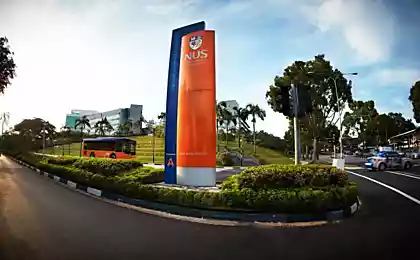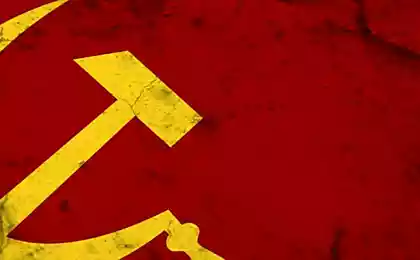1027
A survey of students
Moscow Mayor Luzhkov was to Berezovsky, the real name of Stalin - Bronstein.
On the basis of the survey students of journalism was established this test: bg.ru/tests/6/
Total was interviewed 151 students of journalism faculty of Moscow State University, 84 students of the Higher School of Economics, and 35 students of MGIMO in approximately equal amounts on all courses. Possible answers were not offered to students. The candidates were chosen at random. All questions could not answer any one student, 15 people could not answer at all for any question.
I suggest to you, before you read this post, take the test. I warn you, then the text will be clues, and after reading to pass the test will be interesting. How does the answer to these questions future journalists?
To the question "How many planets in the solar system?" Only 12% of students of journalism faculty of Moscow State University were able to name the correct amount and transfer the planets in the right order, in the HSE these were halved. Among the responses journalism faculty of Moscow State University the number of planets ranged from 4 to 20, in the Higher School of Economics - from 7 to 25. The most popular answers - 7, 9, 11-12.
What it was before the revolution - October or February? 46% of the journalism students of Moscow State University and the HSE failed to answer what it was before the revolution - October or February. Most often, the students suggested that the February revolution - are events of 1905-1907, and in 1917 the revolution with this name did not exist.
Confidently say where the Volga flows, at least 60% able to journalism students. Students touched options from the Black Sea to the Sea of Azov and the North and Baltic Seas in the HSE suggested that the Volga flows into the lake, Oka, the Pacific Ocean, and the Moscow State University - Moscow River, Yenisei, Ob. Some students have decided that "Volga does not fall anywhere».
About half of the journalism students of both universities could not recall a year in which Moscow was first mentioned in chronicles, despite the fact that this year is considered to be the year of foundation of Moscow. Embodiments of the HSE ranged between "some 200" and "1600 some." Journalism at Moscow State University was specifically in the dates, the answers were in the period of 283-1487 years.
About 60% of the students of journalism of Moscow State University, and almost half of the journalists from the towers and MGIMO could not remember what the real name of Stalin, calling options like Gagashvili, Dzhudashvili, Zhurashvili, Berishvili, "Something-there-shvili", "some Georgian, Armenian surname "and Kikabidze Chehardzan, Tsehardzan, Ulyanov and even Bronstein.
We asked students to recall which of Russian writers awarded the Nobel Prize, and how many there were. Less than 5% of journalists in the State University Higher School of Economics, and could list the names of all the winners, and to call the number. The MGIMO almost every second to handle the matter. Every fourth student of journalism faculty of Moscow State University "awarded the prize" Vladimir Nabokov. The winners of the students wrote Pushkin, Dostoevsky, Tolstoy, Blok, Gorky, Platonov, Bulgakov and Bykov.
Only one in five journalism students answered correctly the question of who wrote the fairy tale "The Nutcracker." Most often, a story attributed to Perrault, Andersen, the Brothers Grimm and Tchaikovsky. In addition, students were called names Exupery, Tolstoy, Pushkin and Saltykov-Shchedrin, Chekhov, and even Gaft Gaidar ("he who wrote" Timur and his team »).
Name NATO Secretary General almost was not known to anybody: the Moscow State University of 151 people knew him only 4 in MGIMO he was named 2 of 35 students, and in the Higher School of Economics - one of 84. But Ban Ki-moon as the UN chief appeared mark 60% of respondents in MGIMO 30% - at Moscow State University, and 18% - in the Higher School of Economics, where one student said that Ban Ki-moon headed by the two organizations.
There is a legend that Alfred Nobel, who invented explosives such as ballista cord and blasting gelatin dynamite, after the publication of erroneous obituary (Alfred Nobel confused with his brother), in which it called "explosive merchant of death", has decided to be remembered by posterity Chamberlain something more enjoyable. He got it: only one in five journalism students at Moscow State University Higher School of Economics, and recalled that the Nobel invented dynamite. Most often, the HSE was called the word 'premium', although
the question was: "What Alfred Nobel invented?" journalism at Moscow State University's most popular answer was "oil". The most ridiculous answers, which gave the students - "oil", "ebonite stick", "electricity" and "hydrogen bomb».
When asked who was the mayor of Moscow Yuri Luzhkov, to about 94% of the students of journalism of Moscow State University Higher School of Economics, and unable to answer. The MGIMO - one person out of 35 respondents. The most common excuses were these: "I'm not from Moscow," "I live here long," "I was not born yet (eh)." Students of School of Economics suggested that it was Chernomyrdin, the Bulls, Yakovlev and Berezovsky. MSU - Sobyanin, Brezhnev, Chubais, Kiselev, Zyubov (apparently, this is the name of a distorted Zyuganov). There were also variations "to Luzhkov Luzhkov was" and "the mayor was not, because it was tsarist Russia».
The next question - "What event was one of the reason for the outbreak of the second Chechen war?". As you know, the second Chechen war was officially "anti-terrorist operation" and began the invasion of militants of Shamil Basayev and Khattab in Dagestan, as well as the explosion of residential buildings. We asked students to name at least one event that became a pretext for war. MSU deal with it 7%, and the HSE - 2, 5%. The most common among the causes of the conflict called perestroika, Berezovsky, the confrontation between the USSR and the United States and "there was Nagorno Karabakh».
The simplest question - "What year and whose decree is based MGU?" - We were asked only to journalists, students in the high school, but only 14% of students were able to answer this question fully and correctly identify the year and the name of the author of the decree. In the responses did not correlate with each other year and the emperor: a person could at the same time call Alexander I in 1367. The spread of the dates was "some 1230" to "1800 some" and attributed the authorship of the decree of Peter I, Catherine I and Catherine II, Lomonosov, Shuvalov, Alexander I, Nicholas I, and even Stalin.
Verbose afterword by a citizen of Minsk, which you can not read.
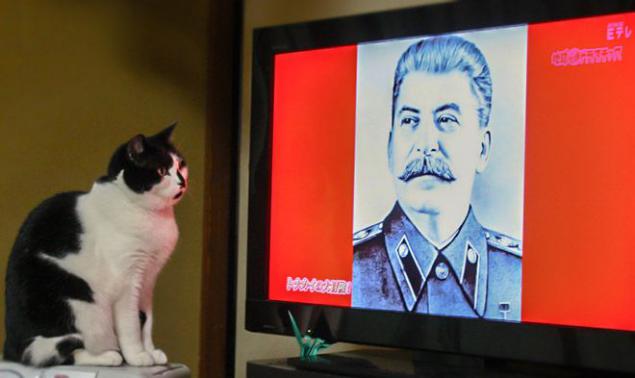
Verbose afterword by a citizen of Minsk, which you can not read.
Picture, if you honestly depressing. Depressing is not that the students do not know the correct answers to all the questions proposed, but the fact that these students are confused about the basic concepts that should be known to every schoolchild. Yes, the child may not know the names of all winners of the Nobel Prize for Literature, but to know the planets of the solar system and when was the February Revolution, he would have. Moreover, it should be aware of future journalists, who must be guided in these matters like a fish in water.
Test just say, a little peculiar. But I think that it is the journalists and should be guided in these matters.
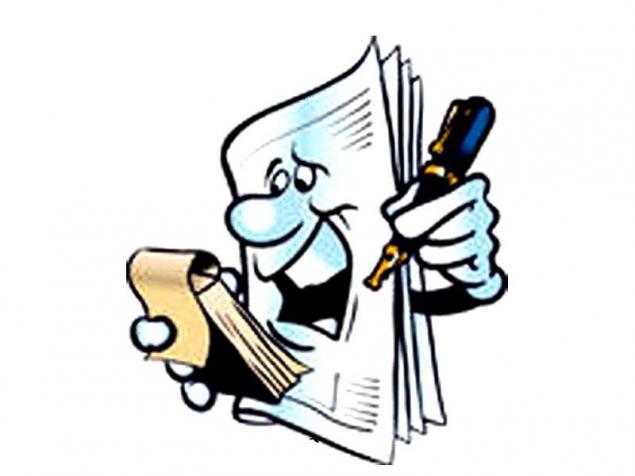
How do I respond to this test.
Well, anyway, I'm not a journalist. And a scholar I have never been. He studied at the usual high school. Then - in the prestige of the university, the education - biologist, teacher of biology. Standouts was taught what I was wondering. Interested in biology, history, loved (and love) to read. In general, ordinary, average person. I tried to solve this test, and that's what happened:
The correct answer to question 8 of 11.
Not correct answer to the question "What year and whose decree is based MGU"; "Who was the mayor of Moscow Yuri Luzhkov to?"; "What event was one of the reasons for the outbreak of the war in Chechnya?»
To the question "What year and whose decree is based MGU" right answer simply did not know. Only I knew that the formation of the Moscow State University Lomonosov was involved. Well, I somehow forgivable, but the students of Moscow State University do not know the history of their university, I do not understand.
To the question "Who was the mayor of Moscow Yuri Luzhkov to?" The answer is simply not known.
To the question "What event was one of the reason for the outbreak of the Second Chechen War?" I chose
all of these events, but one is not suitable for chronology. However, the real reason for the outbreak of war there is not specified.
On several issues I did not know the exact answer, or answer would be different if, like these students, answered questions without response options offered. For example:
To the question "How many planets in the solar system?" The answer would be that the planets 8 or 9. Because, when I was not yet been clarified how celestial bodies approach to the notion of "planet". Clarification was made recently.
The question: "Who among Russian writers were awarded the Nobel Prize for literature?" Did not know the exact answer. He knew exactly only about three laureates. But knowing that the issue of the Nobel Prize, chose the answer, which was the biggest fag ..., ie, the defenders of freedom and nepolzhivtsev (decent people among them only one). And not lost.
To the question "Who is the Secretary General of NATO and the UN," I knew the exact answer only about the UN secretary general. Chose one of the two options by process of elimination, he knew exactly who is one of the candidates for the NATO secretary general.
On other matters he knew the exact answers. And if the answer to the questions without answers are possible, it would not carry the garbage like that "Zyubov -mer Moscow", but honestly would have said that I do not know.
Why did I not a journalist, not a scholar, an ordinary person, I know the answers to most of the questions and the future elite of journalism - does not know?

Source: bg.ru
On the basis of the survey students of journalism was established this test: bg.ru/tests/6/
Total was interviewed 151 students of journalism faculty of Moscow State University, 84 students of the Higher School of Economics, and 35 students of MGIMO in approximately equal amounts on all courses. Possible answers were not offered to students. The candidates were chosen at random. All questions could not answer any one student, 15 people could not answer at all for any question.
I suggest to you, before you read this post, take the test. I warn you, then the text will be clues, and after reading to pass the test will be interesting. How does the answer to these questions future journalists?
To the question "How many planets in the solar system?" Only 12% of students of journalism faculty of Moscow State University were able to name the correct amount and transfer the planets in the right order, in the HSE these were halved. Among the responses journalism faculty of Moscow State University the number of planets ranged from 4 to 20, in the Higher School of Economics - from 7 to 25. The most popular answers - 7, 9, 11-12.
What it was before the revolution - October or February? 46% of the journalism students of Moscow State University and the HSE failed to answer what it was before the revolution - October or February. Most often, the students suggested that the February revolution - are events of 1905-1907, and in 1917 the revolution with this name did not exist.
Confidently say where the Volga flows, at least 60% able to journalism students. Students touched options from the Black Sea to the Sea of Azov and the North and Baltic Seas in the HSE suggested that the Volga flows into the lake, Oka, the Pacific Ocean, and the Moscow State University - Moscow River, Yenisei, Ob. Some students have decided that "Volga does not fall anywhere».
About half of the journalism students of both universities could not recall a year in which Moscow was first mentioned in chronicles, despite the fact that this year is considered to be the year of foundation of Moscow. Embodiments of the HSE ranged between "some 200" and "1600 some." Journalism at Moscow State University was specifically in the dates, the answers were in the period of 283-1487 years.
About 60% of the students of journalism of Moscow State University, and almost half of the journalists from the towers and MGIMO could not remember what the real name of Stalin, calling options like Gagashvili, Dzhudashvili, Zhurashvili, Berishvili, "Something-there-shvili", "some Georgian, Armenian surname "and Kikabidze Chehardzan, Tsehardzan, Ulyanov and even Bronstein.
We asked students to recall which of Russian writers awarded the Nobel Prize, and how many there were. Less than 5% of journalists in the State University Higher School of Economics, and could list the names of all the winners, and to call the number. The MGIMO almost every second to handle the matter. Every fourth student of journalism faculty of Moscow State University "awarded the prize" Vladimir Nabokov. The winners of the students wrote Pushkin, Dostoevsky, Tolstoy, Blok, Gorky, Platonov, Bulgakov and Bykov.
Only one in five journalism students answered correctly the question of who wrote the fairy tale "The Nutcracker." Most often, a story attributed to Perrault, Andersen, the Brothers Grimm and Tchaikovsky. In addition, students were called names Exupery, Tolstoy, Pushkin and Saltykov-Shchedrin, Chekhov, and even Gaft Gaidar ("he who wrote" Timur and his team »).
Name NATO Secretary General almost was not known to anybody: the Moscow State University of 151 people knew him only 4 in MGIMO he was named 2 of 35 students, and in the Higher School of Economics - one of 84. But Ban Ki-moon as the UN chief appeared mark 60% of respondents in MGIMO 30% - at Moscow State University, and 18% - in the Higher School of Economics, where one student said that Ban Ki-moon headed by the two organizations.
There is a legend that Alfred Nobel, who invented explosives such as ballista cord and blasting gelatin dynamite, after the publication of erroneous obituary (Alfred Nobel confused with his brother), in which it called "explosive merchant of death", has decided to be remembered by posterity Chamberlain something more enjoyable. He got it: only one in five journalism students at Moscow State University Higher School of Economics, and recalled that the Nobel invented dynamite. Most often, the HSE was called the word 'premium', although
the question was: "What Alfred Nobel invented?" journalism at Moscow State University's most popular answer was "oil". The most ridiculous answers, which gave the students - "oil", "ebonite stick", "electricity" and "hydrogen bomb».
When asked who was the mayor of Moscow Yuri Luzhkov, to about 94% of the students of journalism of Moscow State University Higher School of Economics, and unable to answer. The MGIMO - one person out of 35 respondents. The most common excuses were these: "I'm not from Moscow," "I live here long," "I was not born yet (eh)." Students of School of Economics suggested that it was Chernomyrdin, the Bulls, Yakovlev and Berezovsky. MSU - Sobyanin, Brezhnev, Chubais, Kiselev, Zyubov (apparently, this is the name of a distorted Zyuganov). There were also variations "to Luzhkov Luzhkov was" and "the mayor was not, because it was tsarist Russia».
The next question - "What event was one of the reason for the outbreak of the second Chechen war?". As you know, the second Chechen war was officially "anti-terrorist operation" and began the invasion of militants of Shamil Basayev and Khattab in Dagestan, as well as the explosion of residential buildings. We asked students to name at least one event that became a pretext for war. MSU deal with it 7%, and the HSE - 2, 5%. The most common among the causes of the conflict called perestroika, Berezovsky, the confrontation between the USSR and the United States and "there was Nagorno Karabakh».
The simplest question - "What year and whose decree is based MGU?" - We were asked only to journalists, students in the high school, but only 14% of students were able to answer this question fully and correctly identify the year and the name of the author of the decree. In the responses did not correlate with each other year and the emperor: a person could at the same time call Alexander I in 1367. The spread of the dates was "some 1230" to "1800 some" and attributed the authorship of the decree of Peter I, Catherine I and Catherine II, Lomonosov, Shuvalov, Alexander I, Nicholas I, and even Stalin.
Verbose afterword by a citizen of Minsk, which you can not read.

Verbose afterword by a citizen of Minsk, which you can not read.
Picture, if you honestly depressing. Depressing is not that the students do not know the correct answers to all the questions proposed, but the fact that these students are confused about the basic concepts that should be known to every schoolchild. Yes, the child may not know the names of all winners of the Nobel Prize for Literature, but to know the planets of the solar system and when was the February Revolution, he would have. Moreover, it should be aware of future journalists, who must be guided in these matters like a fish in water.
Test just say, a little peculiar. But I think that it is the journalists and should be guided in these matters.

How do I respond to this test.
Well, anyway, I'm not a journalist. And a scholar I have never been. He studied at the usual high school. Then - in the prestige of the university, the education - biologist, teacher of biology. Standouts was taught what I was wondering. Interested in biology, history, loved (and love) to read. In general, ordinary, average person. I tried to solve this test, and that's what happened:
The correct answer to question 8 of 11.
Not correct answer to the question "What year and whose decree is based MGU"; "Who was the mayor of Moscow Yuri Luzhkov to?"; "What event was one of the reasons for the outbreak of the war in Chechnya?»
To the question "What year and whose decree is based MGU" right answer simply did not know. Only I knew that the formation of the Moscow State University Lomonosov was involved. Well, I somehow forgivable, but the students of Moscow State University do not know the history of their university, I do not understand.
To the question "Who was the mayor of Moscow Yuri Luzhkov to?" The answer is simply not known.
To the question "What event was one of the reason for the outbreak of the Second Chechen War?" I chose
all of these events, but one is not suitable for chronology. However, the real reason for the outbreak of war there is not specified.
On several issues I did not know the exact answer, or answer would be different if, like these students, answered questions without response options offered. For example:
To the question "How many planets in the solar system?" The answer would be that the planets 8 or 9. Because, when I was not yet been clarified how celestial bodies approach to the notion of "planet". Clarification was made recently.
The question: "Who among Russian writers were awarded the Nobel Prize for literature?" Did not know the exact answer. He knew exactly only about three laureates. But knowing that the issue of the Nobel Prize, chose the answer, which was the biggest fag ..., ie, the defenders of freedom and nepolzhivtsev (decent people among them only one). And not lost.
To the question "Who is the Secretary General of NATO and the UN," I knew the exact answer only about the UN secretary general. Chose one of the two options by process of elimination, he knew exactly who is one of the candidates for the NATO secretary general.
On other matters he knew the exact answers. And if the answer to the questions without answers are possible, it would not carry the garbage like that "Zyubov -mer Moscow", but honestly would have said that I do not know.
Why did I not a journalist, not a scholar, an ordinary person, I know the answers to most of the questions and the future elite of journalism - does not know?

Source: bg.ru
